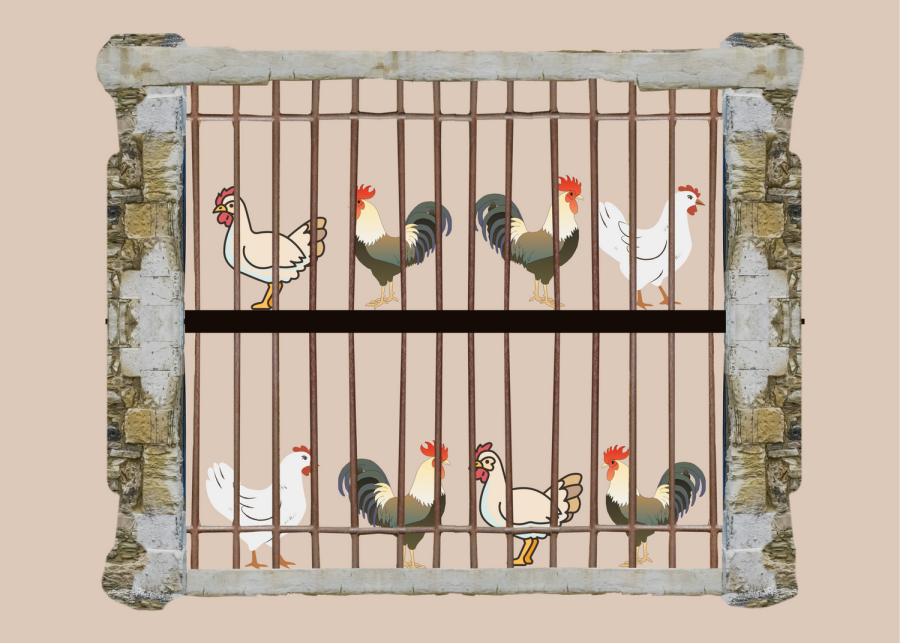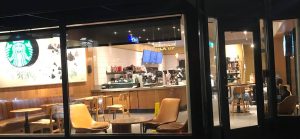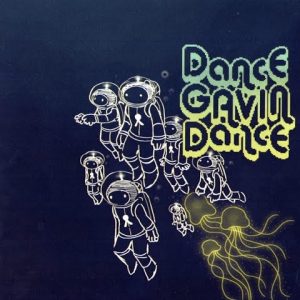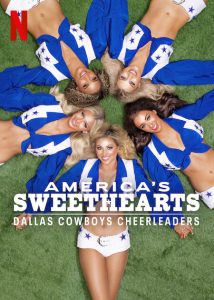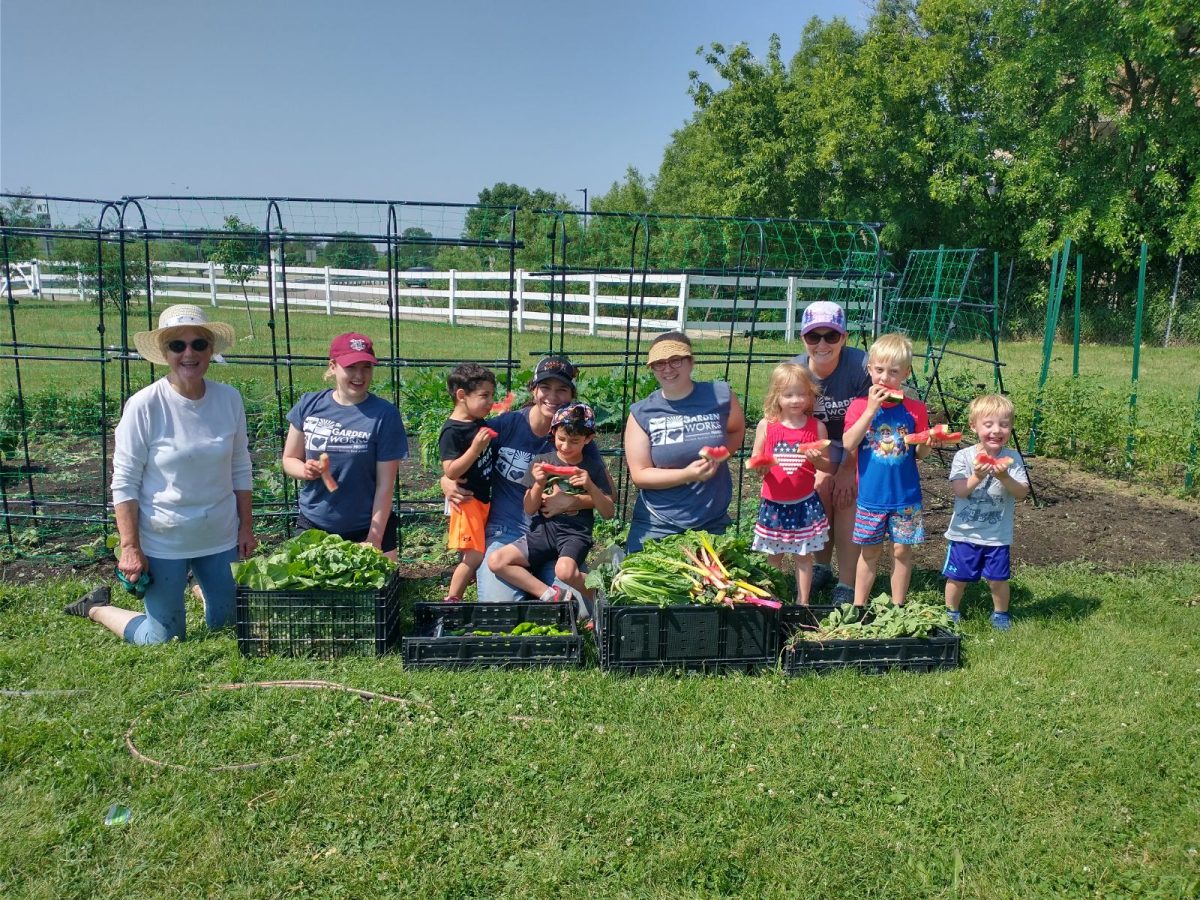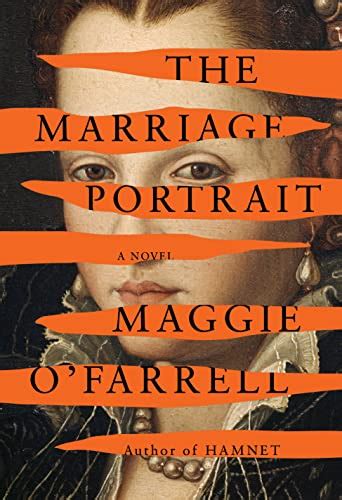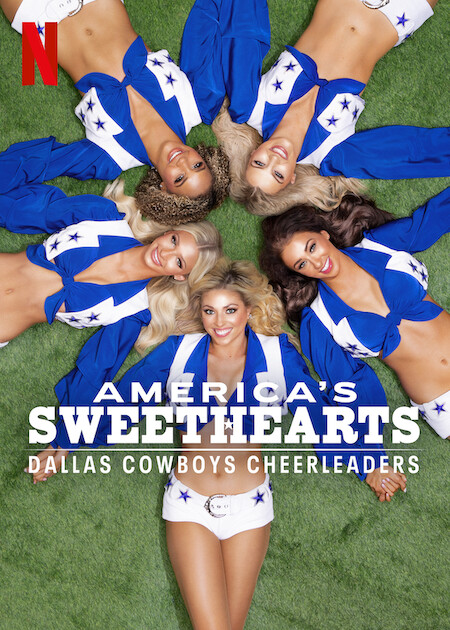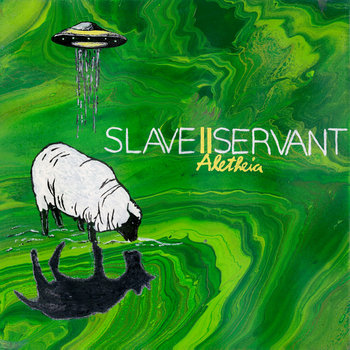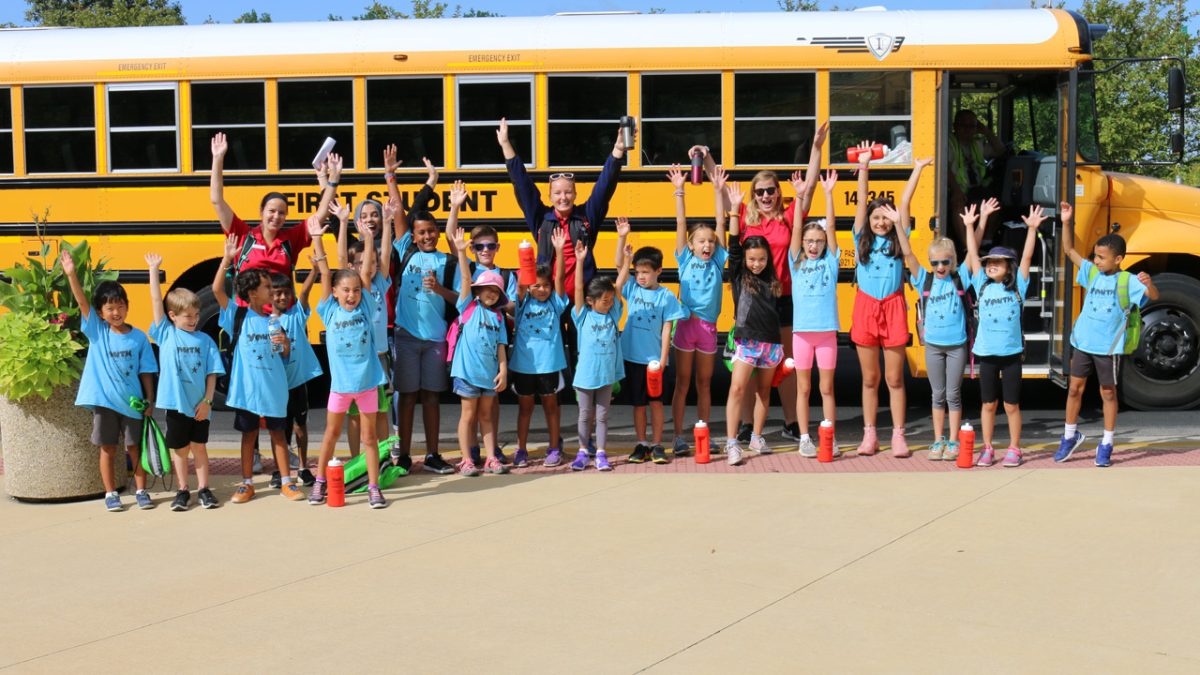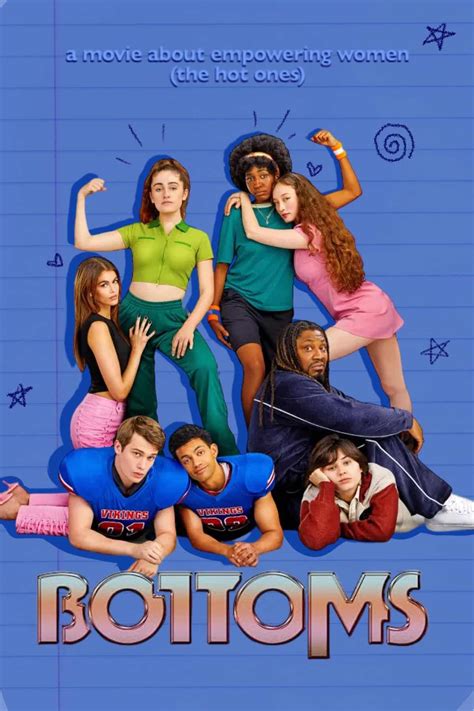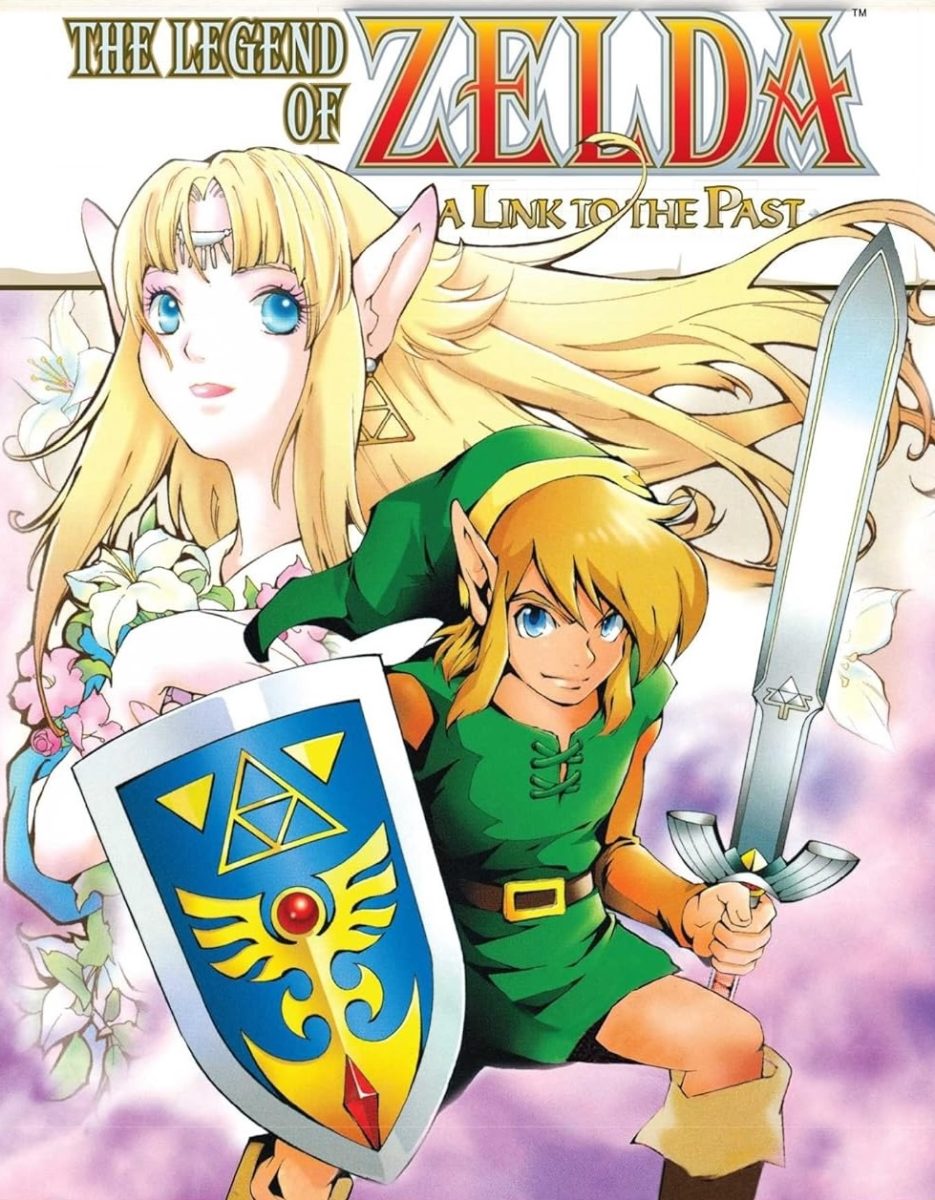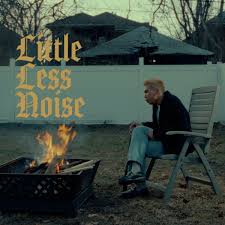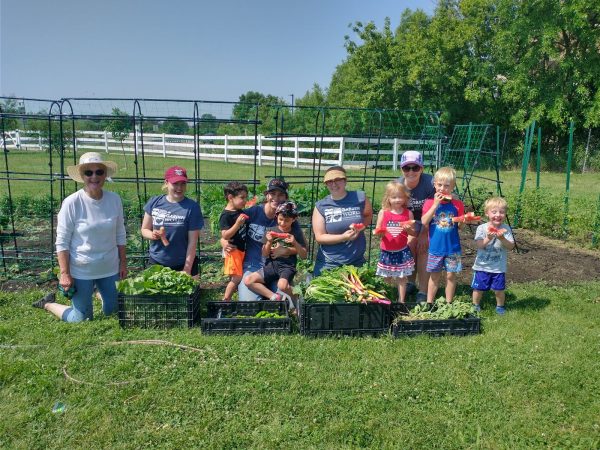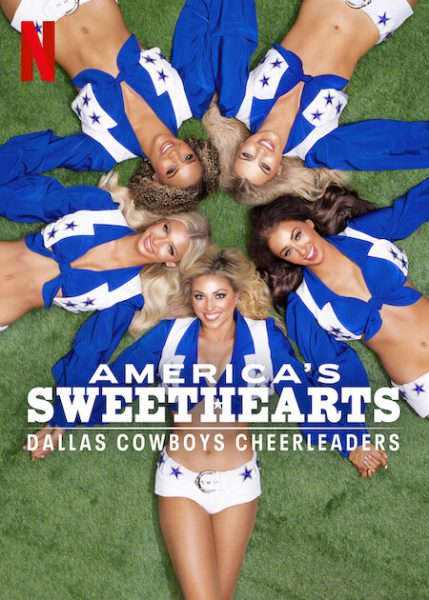How Should We Treat the Animals We Eat? – Animal Welfare Club Weighs In
The club made its debut this semester with a documentary screening that inspired discussion about humans’ role in raising animals for our own use and consumption.
November 14, 2022
An open-to-all screening of the film “At the Fork,” a heart-felt documentary about the animal agriculture industry, was hosted by COD Students for Animal Welfare as their first event of the fall semester on Nov. 10. Following it was a discussion of the film during which attendees addressed ethical questions about the role of humans in caring for animals and shared their own feelings and experiences with issues of animal welfare.
The movie follows its creators, couple John Papola and Lisa Versace, on their journey to a variety of American farms and shows the different ways livestock is treated.
One of the stops on their journey was a high-volume industrial farm that packed hens into cages that were only as long and wide as a sheet of paper and provided barely enough room to stand. Another stop, a small-scale, open-air farm, had large, scenic pastures that allowed the animals to do as they pleased.
The film focuses on the experiences of those working at each of these farms, as well as government officials who have an interest in the animal agriculture industry. From these experiences, the audience gets an understanding of each of their motives and a broad overview of the industry.
“The question being asked in the film is, ‘What does improving an animal’s life matter if the ultimate destination is the same?’” David Ouellette, an adviser to the animal welfare club, asked after the screening.
According to two farmers in the documentary, the health of their livestock improved when the livestock were allowed to engage in their instinctive behaviors.
“That’s an interesting point, because we control every aspect of their lives; we control everything—their sexuality, birth rate, how fast they can grow, what they eat, how they move, how they sleep,” Ouellette said. “You’d have to imagine that giving them the autonomy or freedom to do the things that come natural would overall make them happier.”
Touching on an important question raised by the film, a member of the club, Ashley Fiedler asked, Why do humans have dominion over animals? To her, humans are ultimately the ones changing animals. Animals are not doing that to themselves.
What sticks out to Ouellette when looking at animals is how similar their bodies look to his own.
“When I see human bodies, I’m like, Oh, that’s like a chicken wing,” he said while pinching his forearm. “That’s strange to think about. That’s a body. When it’s alive, it’s active. It feels it. It has consciousness, and it desires.”
To Fiedler, the most important thing from the movie that relates to the club is humans having dominion over animals. “That line is what our club is trying to be about; trying to explain how we want rights for humans and rights for animals as well,” she said.
Talking about the numerous movies, books, and stories about animals in agriculture, Fiedler wondered what someone could do to address the issue.
Ouellette chose to adopt veganism, a change many make to address the issue. He connected to the moment where Papola tries a meat-alternative jackfruit sandwich at a vegan restaurant and is immediately impressed. Papola says in the film that if every meat alternative tasted as good as the jackfruit, it’d be really easy to give up meat.
Ouellette shared that before he was vegan he loved buffalo chicken wraps.
“But I found plant-based options that are, if not 100% there, 98% of the satisfaction I would get from the former,” he said.
He says finding suitable replacements that don’t make one feel like they’re missing out on taste or nutrition is a major step for those choosing to eat fewer animal products.
“We’re not going to be like, ‘Oh, you don’t care about animals.’ Yeah, you do!” Said Fiedler. “As long as you’re taking the time to learn about it, then that’s cool.”
The discussion was a great start to the club’s goals of creating a judgment-free environment where students can share their thoughts and experiences regarding animal welfare, especially difficult to approach issues such as the treatment of livestock.

